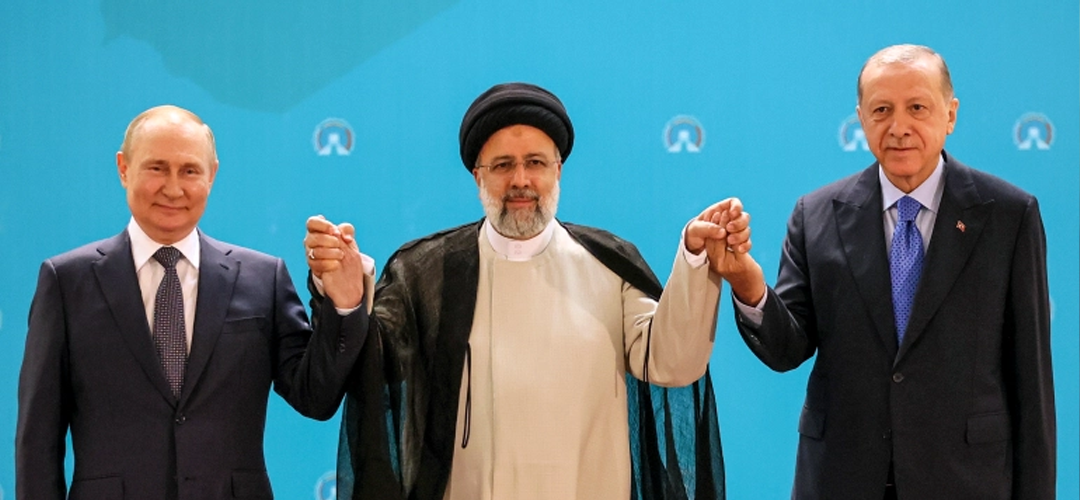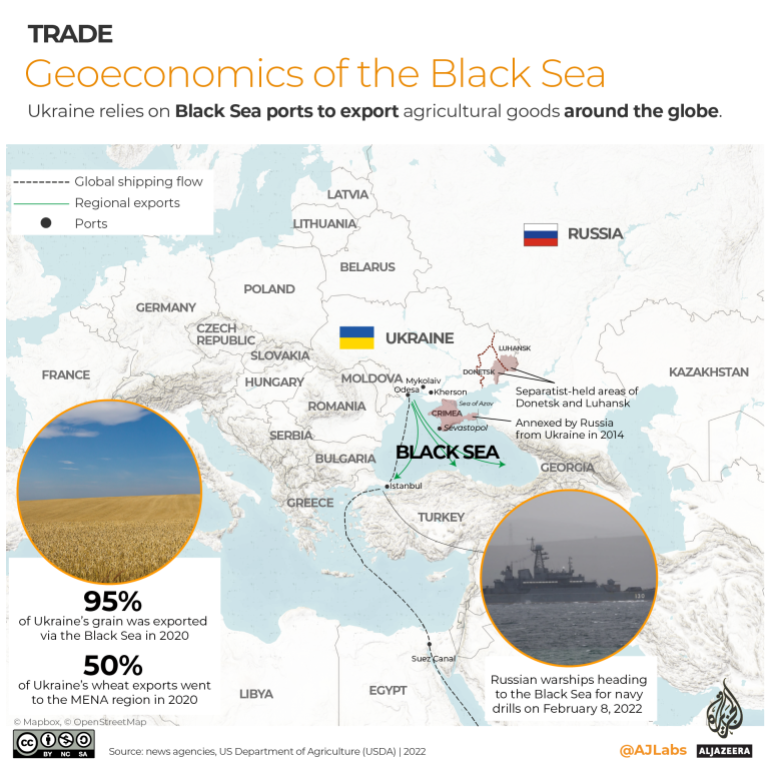TURKEY - RUSSIA SUMMIT, 2022
August 7, 2022 | Expert Insights

After having recently summited in Tehran, President Putin and President Erdogan are scheduled to meet again, this time in Sochi, Russia. After having successfully negotiated the grain deal, President Erdogan has clearly demonstrated his influence in Kremlin, and therefore, the outcome of this summit is eagerly awaited.
Background
The bilateral relations between Russia and Turkey have been subjected to continuous cyclical change. However, of late, these relations appear to be proceeding in the right direction, with greater understanding being demonstrated by both sides for each other's concerns and interests.
The history of their relations back to the period from the late 16th century to the early 20th century. However, they are noteworthy only for the hostility that both sides displayed, culminating in a series of bloody Russo -Turkey wars. The relations later took a turn for the better during the First World War but went back to being sour after the Second World War. During the cold war, Turkey as a prominent NATO member, was on the opposite side of the Iron Curtain, sworn to go to the assistance of other member states if invaded by the USSR.
After the dissolution of the Soviet Union, relations between Turkey and Russia improved significantly. However, the two remained at opposite ends in areas of foreign policy, especially in the middle east and the Caucasians, where their national interests clashed. Later in May 2009, President Erdogan’s visit to Russia seemed to strengthen their bilateral relations, and by 2010 there was the signing of a good number of deals between the two.
Both sides were active participants in the Syrian civil war, and a clash was inevitable as air and ground units came perilously close to each other while conducting support operations for their respective protégé. The downing of a Russian Su-24 in 2015 on the Turkey-Syrian border marked the nadir of their relations in the Middle East, with Russia imposing a series of sanctions on Ankara. However, President Erdogan, already isolated by his allies in the West, especially the U.S., backed off and diplomatically regretted the incident, opening the way to the strengthening of bilateral relations.
Today, Turkey obliquely supports Russia in the ongoing Ukraine-Russia War and has refrained from participating in the sanction regime imposed on Russia. It has also been hard at work to bring about a cease-fire, and the recent grain deal can be counted as a success for President Erdogan's diplomatic skills.

Analysis
Turkey-Russia relations must be seen in the light of deteriorating Turkey-USA relations. Once considered the bulwark of American interests in the Middle East and the Caucasians, today, Turkey-US relations seem to have gone awry a few years ago. As Ankara cosied up to Moscow, its gap with the West widened and reached a climax when it struck the S-400 deal with Russia, despite the threat of American sanctions. These deteriorating relations have been exacerbated by the Turkish military assault on the American-supported Syrian Kurds, the Turkish meddling in the Eastern Mediterranean oil finds where it came into direct conflict with its arch-enemy Greece and the legal cases against Turkey's Halkbank related to U.S. sanctions on Iran. There is a general impression in the West that democracy and secularism are regressing in Turkey, and Turkey's ambivalent attitude towards the Russian invasion of Ukraine has not helped matters.
These fractured relations, as well as President Biden's refusal to a one-on-one meeting with Erdogan in 2019, only pushed Turkey to a closer relationship with Russia. Obviously, President Erdogan and President Putin, both strong and authoritarian figures in their respective governments, find much in common and relate better. America’s loss is Russia’s gain.
As per media reports, the agenda for the summit will cover a wide canvas- regional, economic, and global developments. Turkey has been threatening a large-scale military operation in northern Syria during the congenial summer months against the PKK, for which it needs a Russian nod. Since the Russians seem to have taken over the skies of Syria, their assent is essential to avoid casualties on the Turk side. Suffering under the burden of a massive Syrian refugee influx, Ankara is keen to create a safe enclave for Syrian refugees in Northern Syria where they can be managed better with international aid flowing in more liberally.
With Turkey experiencing its worst economic crisis in two decades and President Erdogan facing elections next year, the supply of cheap Russian could be an important item on the agenda since the country is already an important supplier of 45 per cent of energy to Turkey. There is also speculation about the possibility of the two countries sharing armed aerial drone expertise, a domain in which Turkey has proved its lead time and again under combat conditions in hot spots around the world.
Assessment
- The summit seems to be vital for President Erdogan, especially in terms of his declining popularity at home due to the worsening economic situation. Russia’s support in supplying energy and gas is of utmost importance to mitigate the effect of the global recession that looms on the horizon.
- Turkey controls Russian access to the warm waters of the Eastern Mediterranean and is the only NATO member who is supportive of Mr Putin to a degree. In a hostile diplomatic environment, where few national leaders wish to invite Western wrath by rubbing shoulders with Mr Putin, President Erdogan is a prodigal. It is a relationship of mutual benefit and, along with the ‘Russian-China axis’, is likely to be the fulcrum of Mr Putin's foreign policy, at least in the short term.








Comments